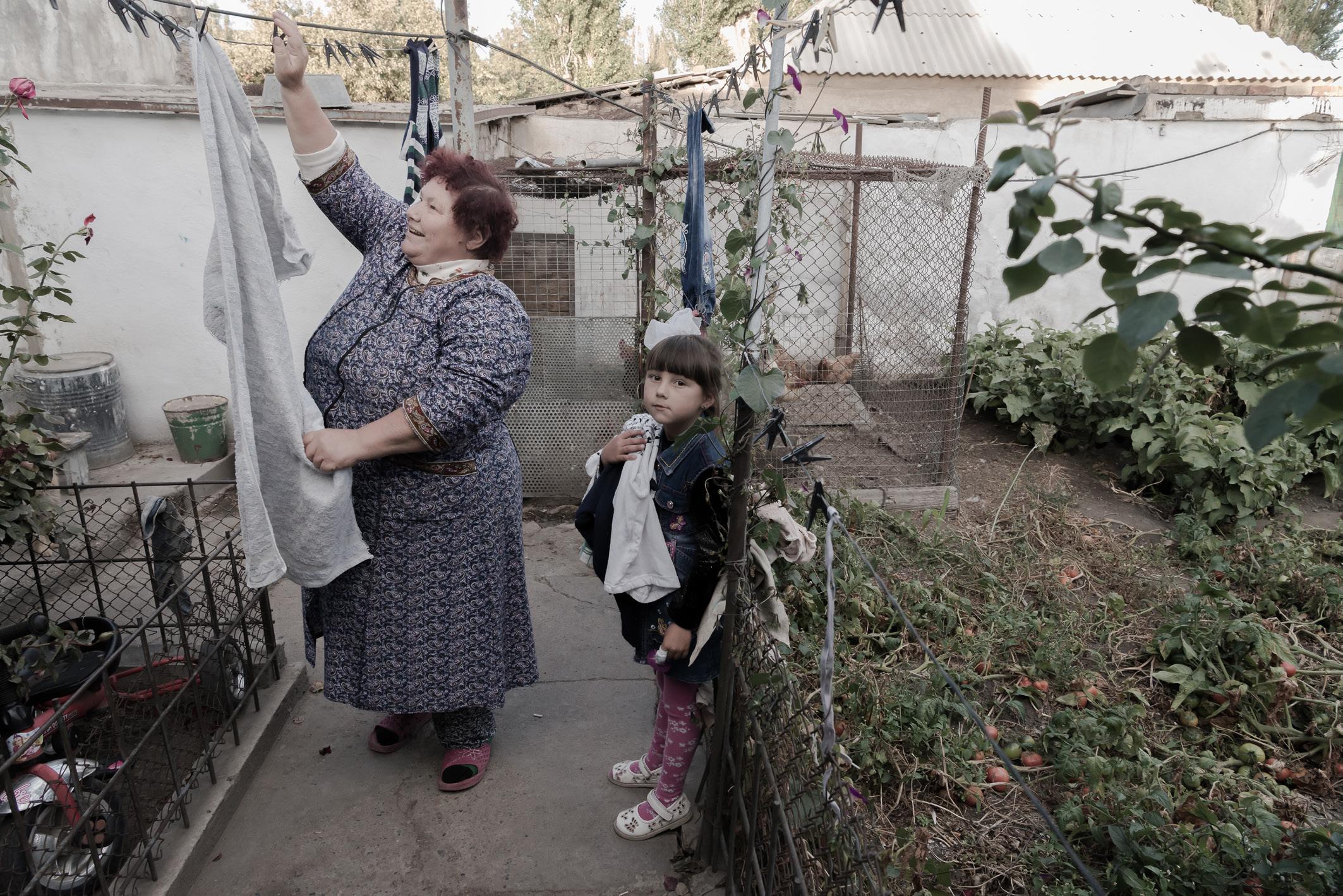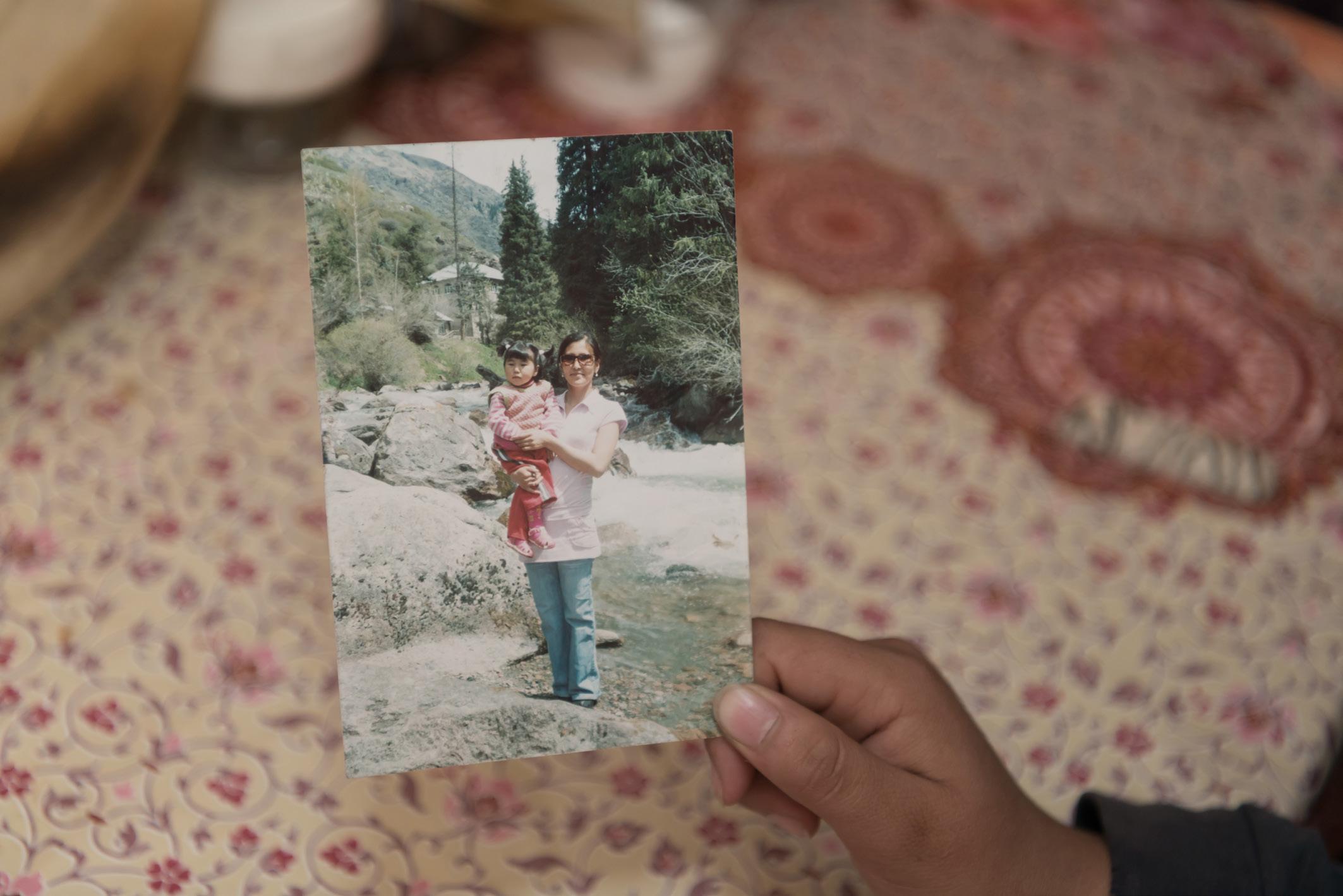
5 minute read
Balykchy - Portrait of a Former Soviet Industrial City
Jo Kearney ARPS
Balykchy was once one of Kyrgyzstan’s industrial powerhouses, situated on the banks of a giant alpine lake. Today, more than a quarter of a century after the break-up of the USSR, it is a Soviet ghost town. It now represents a symbol of communist decay. Hulls of ships and cranes rust at the port and factories lie in ruins; parks that were once the pride of the city are filled with weeds and statues of Lenin crumble.
Advertisement
Balykchy, meaning fisherman in the Kyrgyz language, derives its name from the city’s fishing and boatbuilding heritage. It was devastated by the break-up of the Soviet Union which brought an end to trade links and financial backing from Moscow. As factories dwindled to a halt people lost their jobs and the town eventually went from full employment to almost nothing.
Today there are a few private restaurants and shops serving tourists travelling to the resorts that lie further east along Lake Issyk-Kul, the world’s second biggest alpine lake. People set up stalls selling fruit and dried fish to motorists, but the fish comes from China and not the lake. There’s also a brisk trade to be done at the town market selling goods imported from China.
Many young people are forced to leave their country and find work in Russia and Kazakhstan, often leaving their children with their ageing parents. These pensioners continue to cling to communist ideals and dream of Soviet times when food and housing was cheap and they could afford to travel to Moscow and Kiev. They struggle to survive on meagre pensions and are forced to take over the full-time care of their grandchildren.

Lena helping her grandmother, Valentina Pogojeva, with the housework
Jo Kearney ARPS
Valentina Pogojeva has acted as a full-time mother to her two grandchildren Dasha and Lena since they were both 10 months old. Her daughter, Nadejda Mahortova, works for an engineering company in Almaty, Kazakhstan. The girls have different fathers and neither keeps in touch, which is all too common in Kyrgyzstan these days. Their mother returns home for 3 days each month. ‘She comes laden with presents and plays with them,’ explained Valentina, ‘but to know your children you have to see them every day.’ Sometimes the girls call Valentina mummy and other times granny. She gets them ready for school, cooks their meals and helps with homework. Valentina says the school has offered to help but she feels there are more deserving cases. She says they manage okay with her daughter’s income which they supplement by keeping chickens and growing vegetables in her small garden. In the summer holidays one of the churches paid for the girls to attend a camp which gave Valentina a well-earned rest. ‘You can always tell the children who don’t live with their parents,’ she explained: ‘They watch other pupils being picked up by their parents and you can see the sadness in their eyes. Many also have behavioural problems as their grandparents can’t always control them.’

Dasha and Lena looking a photos of their mother who is working in Almaty, Kazakhstan
Jo Kearney ARPS

Valentina Pogojevo with her grand daughters Dasha and Lena She cares for them full time while her daughter works in Almaty, Kazakhstan
Jo Kearney ARPS

Valentina Palamar, 63, in her one-room flat with her grandson
Jo Kearney ARPS
Valentina Palamar, 63, lives in a dilapidated Soviet-era apartment block. The balconies look so precarious that they might fall off and the crumbling stairwells are dark and eerie, even in the daytime. Valentina’s one-room flat is next to her daughter’s which is convenient as it means she can help look after her three grandchildren. Her daughter is divorced and works as a primary school teacher and earns only $50 a month so Valentina also contributes some of her $100 pension from her years working as a nurse. The flats have no heating or running hot water so it’s bitterly cold in winter. But Valentina takes me to the balcony to show me the view of the lake and the mountains. ‘We don’t have it so bad,’ she said, ‘and I have my health.’ Still, life was better during Soviet times, she says showing me holiday photos of trips to Kiev and Tashkent. ‘In those days we could afford to travel. I even went to Bulgaria with the young communists.’

Olga Ogarkova, 61, looking at photos from Soviet times Her husband Oleg Moiseenko, 70, looks on
Jo Kearney ARPS
Olga Ogarkova, 61, lives with her husband Oleg in a pretty mud-walled bungalow more reminiscent of Russian tsarist times than Soviet. In the ramshackle garden are wooden racks of apricots and slices of apples drying in the sun. Olga points to her fruit trees and tomato plants. She also keeps hens which give them plenty of eggs. Her husband has diabetes so most of their $100 a month pension goes on prescription drugs. ‘During Soviet times life was good,’ said Olga. ‘We all had jobs and a reason to get up in the morning. We could travel to Moscow, Uzbekistan and Kazakhstan’, she said showing me photos of her travels and May Day marches during the Brezhnev era. ‘My husband even went to Germany. Now young people just hang around and drink vodka there’s nothing for them to do.’

Samira with her 3 grandchildren, Ryana, Adinai and Aklai
Jo Kearney ARPS
On the outskirts of Balykchy Samira Omuralieva lives in a crumbling white-washed mud bungalow with her grandchildren, Six-year-old Adinai was propped up at the kitchen table beside her two sisters Aklai, 15, and Ryana, 12. Flies buzzed around a plate of dried bread and a pile of chicken bones left over from lunch. Adinai was born with brain damage and needs regular physiotherapy, which is why the girls’ mother Diana, who is divorced, has been forced to work in Turkey as a nanny to pay the medical bills. The girls’ father isn’t around so Samira and the two older girls take care of Adinai. ‘Money is very tight but what can we do’ says Samira.

Aklai holding a photo of her mother who is working as a nanny in Ankara, Turkey
Jo Kearney ARPS

Aklai helps care for her younger sister Adinai who is disabled. Her mother is away working in Turkey as a nanny to help provide money for physiotherapy.
Jo Kearney ARPS

